Q
What‘s the Oil Capacity of BYD Seal's Engine?
The BYD Seal is an electric vehicle (EV), so it doesn't require engine oil but is powered by electric motors.
The three variants of the BYD Seal, namely the 2024 BYD Seal Dynamic EV, 2024 BYD Seal Premium (Extended Range), and 2024 BYD Seal Performance AWD, all run on electricity. They adopt battery systems like the BYD Blade Battery or Lithium iron phosphate battery for energy storage, and electric drivetrains.
For EVs, maintenance focuses more on battery health, charging system checks, and the condition of electric components rather than engine oil changes, making them more environmentally friendly and often require less frequent maintenance compared with traditional gasoline or diesel-powered cars.
Special Disclaimer: This content is published by users and does not represent the views or position of PCauto.
Related Q&A
Q
What is the most sold electric car in the world 2024?
As of 2024, the world's best-selling electric vehicle is the Tesla Model Y. This ride has won over consumers globally, thanks to its impressive range, cutting-edge autonomous driving tech, and that ever-expanding Supercharger network. It's been particularly killing it in North America, Europe, and Asia. For Malaysian buyers, the Model Y might just be a top contender too. Tesla's been steadily beefing up its presence in Southeast Asia, and that includes rolling out Superchargers in Malaysia. Sure, the local EV scene is still growing, but government support for new energy vehicles—think tax breaks and charging infrastructure pushes—is really helping to drive adoption.
But Tesla isn't the only player in town. Brands like BYD, Hyundai, and Nissan also hold significant chunks of the global EV market. Take the BYD Atto 3 (that's the Yuan PLUS) and Hyundai Ioniq 5, for example—they're gaining traction with their solid value for money and fresh, innovative designs.
For Malaysian consumers eyeing an EV, it pays to weigh factors like range, how easy it is to charge up, after-sales service, and local market support. With tech advancing and policies backing things up, the Malaysian EV market is only going to get more diverse in the years ahead.
Q
What is BYD ranked in the world in 2024?
BYD has solidified its position among the world's top automakers in 2024, with standout performance in the new energy vehicle sector. Industry data shows their sales have cracked the global top three, cementing their status as one of the most influential EV brands around. The secret to BYD's success? Their robust vertical integration – they develop everything in-house, from batteries and motors to electronic control systems. On top of that, they're aggressively expanding overseas, with Southeast Asia (Malaysia included) being a key strategic focus.
For Malaysian buyers, models like the Atto 3 are steadily gaining traction thanks to their strong value proposition and impressive range. Local assembly plans are only set to boost their competitiveness further. A big selling point? BYD's Blade Battery technology, which leads the industry in safety and energy density – a crucial advantage in Malaysia's hot climate.
As the global shift to electrification accelerates, BYD looks primed to grow its market share and roll out more innovative products. If you're a Malaysian considering an EV, make sure to weigh factors like charging infrastructure, warranty policies, and local after-sales support before making your decision.
Q
What is the best-selling EV in China 2024?
The best-selling electric vehicle in China's market for 2024 is the BYD Song PLUS EV. This model has won widespread favor among consumers thanks to its impressive range, spacious interior, and BYD's accumulated technological expertise in the EV sector. As a leader in China's EV market, BYD boasts a product lineup spanning from entry-level to high-end models, catering to the diverse needs of different consumers. The success of the Song PLUS EV also reflects Chinese consumers' preference for family-friendly electric SUVs.
For Malaysian consumers, while BYD might not enjoy the same level of brand recognition as Japanese or German marques in the local market, the technological prowess and cost-effectiveness advantages of Chinese brands like BYD are becoming increasingly evident as EVs gain global traction. It's plausible that they could carve out a significant presence in Malaysia in the years to come.
The development of electric vehicles doesn't solely rely on the performance of the cars themselves; the improvement of charging infrastructure is also a crucial factor driving their widespread adoption. The Malaysian government has been actively pushing for the implementation of EV-related policies in recent years, including the construction of charging stations and vehicle purchase subsidies. These initiatives will create favorable conditions for the promotion of electric vehicles in Malaysia.
Q
How many cars has BYD sold in China in 2024?
I haven't been able to track down specific, standalone figures for BYD's sales exclusively in China for 2024 just yet. However, what we do know is that BYD's global sales hit a whopping 4.27 million units last year, with overseas markets contributing 417,204 units. Doing a little back-of-the-envelope math, that roughly puts their China sales at around 3.8528 million units (4.27 million -41.7204 million=3.852796 million).
2024 was an absolutely stellar year for BYD. They didn't just dominate the sales charts in China; they also clinched the title of the world's top-selling new energy vehicle manufacturer. A big part of their success comes down to their multi-brand strategy – think "BYD," "Fang Cheng Bao," "Denza," and "Yangwang" – each catering to different market segments and needs. On top of that, continuous technological innovation, like their "e-platform 3.0 Evo" and "5th Generation DM Technology," has been a major driver propelling those sales numbers ever higher.
Q
How much is the BYD Seal in 2024?
The 2024 BYD Seal comes in multiple variants with different price tags. Specifically, the BYD Seal Dynamic EV is priced at RM 163,800, the BYD Seal Premium (Extended Range) goes for RM 179,800, and the top-of-the-line BYD Seal Performance AWD hits RM 199,800. All these are pure electric D-segment sedans, boasting solid range and equipment levels. Let's talk dimensions: they stretch 4,800mm in length, 1,875mm in width, 1,460mm in height, with a 2,920mm wheelbase. There's seating for five, and a 400-liter trunk to boot. Performance-wise, the variants differ quite a bit. The Seal Performance AWD, for example, rockets from 0-100km/h in a claimed 3.8 seconds, while the Seal Dynamic EV does the same sprint in a stated 7.5 seconds. So, buyers can pick the one that best fits their needs.
Q
What Segment Does BYD Seal Belong to?
The BYD Seal belongs to the D-segment cars. D-segment cars are typically mid to large-sized vehicles, well-known for striking a balance between space, comfort, and performance.
The BYD Seal has a body length of 4,800 millimeters, a width of 1,875 millimeters, and a wheelbase of 2,920 millimeters, offering passengers a relatively spacious interior. The trunk space is also quite decent. Such specification makes it suitable for comfortable long - distance trips and can meet the sufficient space requirements for daily use. Moreover, in terms of performance, the Seal provides different versions with various power outputs. It can provide a smooth daily driving experience and also offer a more exciting high - performance driving feel. Whether for family users or individual users who desire more space and better performance in their vehicles, the D - segment BYD Seal is an appealing choice.
Q
What's the Reslae Value of BYD Seal?
The BYD Seal, a relatively new electric vehicle in the Malaysian market, currently lacks complete data on its resale value, but general resale value for EVs can provide some references. Due to rapid advancements in EV technology, the resale value of electric vehicles typically declines slightly faster than that of comparable internal combustion engine (ICE) vehicles in the first three years—around 50%-60% for EVs versus 60%-70% for ICE cars.
Key factors influencing resale value include battery health (BYD offers an 8-year/160,000 km battery warranty), growing brand recognition (BYD has shown strong performance in recent years), and the maturity of EV infrastructure (such as charging network development). Compared to similar ICE vehicles, the BYD Seal's extended battery warranty and lower operating costs (electricity being significantly cheaper than fuel) may help mitigate depreciation.
For prospective buyers, it is advisable to consider certified pre-owned programs and maintain complete service records to preserve resale value. As EV adoption increases, more definitive resale value data will be provided.
Q
What's the Displacement of BYD Seal?
The BYD Seal is an electric vehicle, so it doesn't use the traditional "CC" (cubic centimeters, used to measure internal combustion engine displacement) as a metric. It provides different versions, such as the Dynamic EV, Premium (Extended Range), and Performance AWD. In terms of the powertrain, the Dynamic EV version has a total motor power of 150kW, a maximum horsepower of 204PS, and a total torque of 310N·m. The Premium (Extended Range) version has a total motor power of 230kW, a maximum horsepower of 308PS, and a torque of 360N·m. The Performance AWD version is more powerful, with a combined system power of 390kW, a combined horsepower of 523PS, and a combined torque of 670N·m. These motors can provide efficient and strong power output, meeting different consumers' needs for speed, range, etc. Moreover, the all - electric drive also complies with the current trend of environmental protection and energy conservation.
Q
What's the PCD Size of BYD Seal?
The PCD (Pitch Circle Diameter) of the BYD Seal is 5×114.3, which means the wheel hub has 5 bolt holes evenly distributed on a circle with a diameter of 114.3 millimeters, matching the standard used by many mainstream Japanese vehicles (such as Honda and Toyota). So, it's easy to find compatible wheel hub options for modification or replacement in the Malaysian market.
Beyond PCD, wheel modifications also require attention to other parameters, including the hub bore (recommended to use OEM-concentric hub rings for precise fitting), offset (ET value), and wheel width to avoid affecting suspension geometry or causing friction. For wheel upgrades, it is advisable to choose EV-rated products that can accommodate the Seal's battery weight and prioritize purchasing through BYD-certified channels to ensure safety and compatibility.
Q
Does BYD Seal Support Apple Carplay?
The BYD Seal doesn't have the Apple CarPlay feature. Apple CarPlay is a system developed by Apple Inc., which allows iPhone users to connect their devices to the in-vehicle infotainment system. Although some car models in the market support this feature, the BYD Seal isn't one of them.
However, the BYD Seal has its own advanced infotainment system. It's equipped with a 15.6 - inch intelligent rotating touchscreen, which can provide a wide range of entertainment and vehicle control functions. This car also adopts a comprehensive set of standard configurations, such as various safety systems, comfortable seats with multiple adjustment options, and a high - quality sound system with 12 Dynaudio speakers. Even though the Seal doesn't have Apple CarPlay, its own infotainment capabilities can still bring users a convenient and pleasant driving experience.
Popular Cars
Model Year
Car Compare
Car Photo
Latest Q&A
Q
Does the 2019 Golf GTI have a timing belt or chain?
The 2019 Golf GTI uses a timing chain instead of a timing belt—a design that offers better durability and lower maintenance costs. Typically, a chain lasts as long as the engine itself and rarely needs replacement, whereas a belt requires inspection or replacement every 60,000 to 100,000 km. If neglected, a worn belt can snap and cause severe engine damage.
VW’s EA888 engine family has long relied on chain-driven systems, which are relatively quiet and highly reliable. That said, it’s crucial to periodically check the tensioner’s condition. Some earlier models experienced timing issues due to tensioner design flaws, but this was addressed in the 2019 version.
For performance enthusiasts, a chain system handles high-revving stress better, making it a common choice for hot hatches like the GTI. For daily driving, just stick to VW 50400/50700-spec oil as recommended in the manual—proper lubrication keeps the chain system healthy long-term.
One heads-up: If you hear noticeable metallic rattling near the front of the engine, have the guides or tensioner inspected ASAP. Unlike the telltale belt squeal before failure, this noise is a classic sign of chain-related wear.
Q
What is the recall on the 2019 GTI?
The 2019 Volkswagen Golf GTI was subject to a safety recall addressing two potential issues. First, the fuel pump control unit software could malfunction, potentially causing engine stalling in rare cases. Second, some vehicles might have rear suspension stabilizer link bolts that weren't tightened to specification, posing a loosening risk. Owners can visit authorized dealers for free software updates or bolt retightening.
These proactive recalls demonstrate Volkswagen's commitment to safety. Dealers often handle outstanding recall items during routine maintenance.
For performance-oriented models like the GTI, it's wise to go beyond recall checks. Pay close attention to the turbo system, DSG transmission fluid, and brake wear—these components endure more stress during spirited driving. If warning lights appear or you notice unusual noises, get a professional inspection promptly. Keeping the car in top shape ensures you can fully enjoy its dynamic capabilities.
Q
Does the 2019 GTI require premium gas?
The 2019 GTI does recommend using high-octane fuel (typically RON 95 or above). Its 2.0L turbocharged engine has a relatively high compression ratio, and premium gas ensures optimal performance while reducing knock risk. It also helps maintain engine cleanliness and long-term reliability.
While the car may tolerate lower-octane fuel (like RON 92), you’d see slightly reduced power output and fuel efficiency. Over time, it could also affect engine longevity. Turbocharged engines are particularly sensitive to octane ratings since turbos generate higher heat and pressure—high-octane fuel handles these conditions better.
Mixing different fuel grades occasionally won’t hurt, but sticking to the manufacturer’s recommendation is ideal. Also, periodic fuel additive treatments can help clean carbon buildup, especially for direct-injection engines.
One more thing: even with the same octane rating, fuel additive packages vary by brand. So, picking a reputable gas station matters too.
Q
How long will a 2019 GTI last?
The lifespan of a 2019 GTI largely depends on maintenance and driving habits. With regular oil changes, transmission fluid replacements, and avoiding aggressive driving, it can easily clock over 200,000 kilometers—or even more. Its 2.0T engine and DSG gearbox are proven combos, and as long as you stick to the factory service schedule, mechanical reliability won’t be an issue.
Just keep in mind: turbocharged engines demand extra care. Always use the right spec full-synthetic oil and monitor the cooling system. Climate plays a role too—hot, humid conditions mean paying extra attention to rubber seals and electronics. Every 50,000 km, have the timing chain and high-pressure fuel pump inspected (key items for turbos).
Driving style matters. Don’t redline it constantly, and let the engine warm up properly after cold starts. Rustproofing helps long-term durability, so regular underbody washes are smart. Nail these details, and this car’s built to last.
Q
How fast is the 2019 GTI?
The 2019 GTI truly delivers when it comes to performance. Under the hood lies a punchy 2.0-liter turbocharged four-cylinder, churning out 228 horsepower and 350 Nm of torque. Whether you opt for the engaging 6-speed manual or the lightning-fast 7-speed DSG, this hot hatch rockets from 0-100 km/h in just 6.3 seconds, with an electronically limited top speed of 250 km/h.
What really sets the GTI apart is its razor-sharp handling. The sport-tuned suspension and electronic differential lock work together to deliver precise steering and rock-solid cornering stability. It’s the perfect blend of everyday practicality and proper driver’s car thrills—a well-rounded hot hatch in every sense.
For enthusiasts, the GTI’s tuning potential is massive. Many owners go for ECU remaps or intake/exhaust upgrades to squeeze out even more power. Just remember to keep things street-legal—safety and compliance should always come first. Around here, these pocket rockets have a solid following, and it’s easy to see why.
View MoreRelated News

2025 BYD Seal Coming to Malaysia with DiSus-C Adaptive Suspension
JohnAug 13, 2025
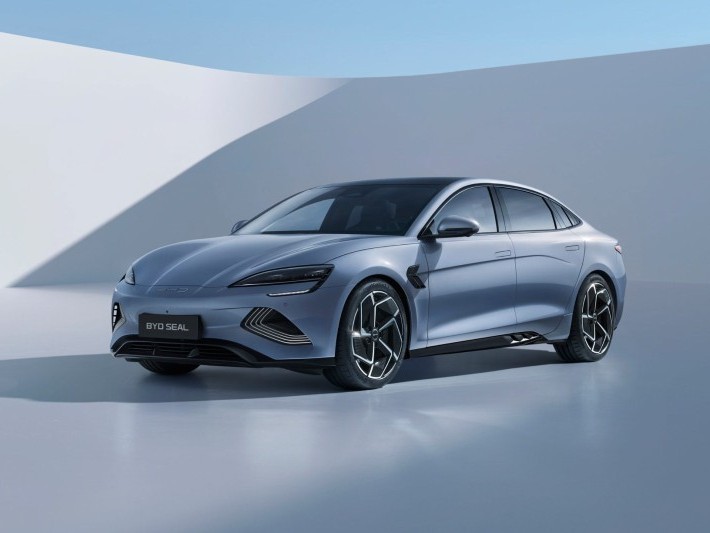
BYD Seal interior design revealed: A fusion of modern technology and luxury
RobertJul 15, 2025
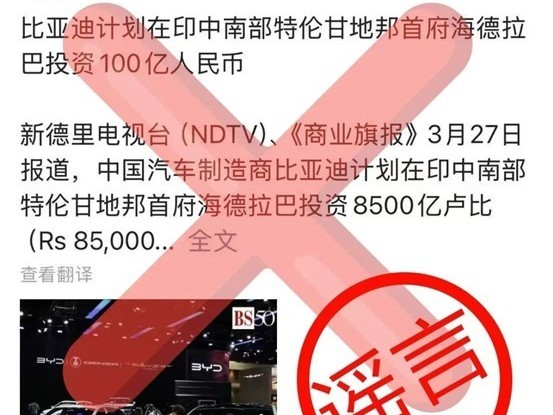
BYD Denies Rumors of ¥10 Billion Investment in Factory in India
JamesApr 1, 2025
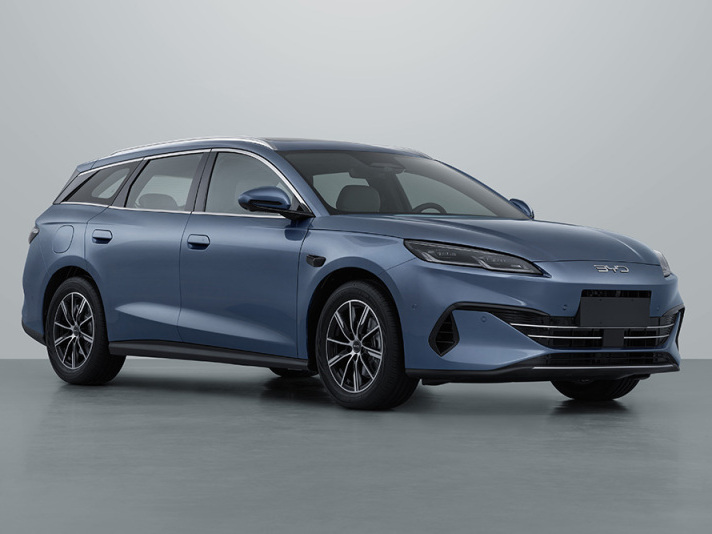
Photos of the BYD Seal 06 Touring Edition Reveal the Brand's Entry into a New Niche Market
JamesMar 24, 2025
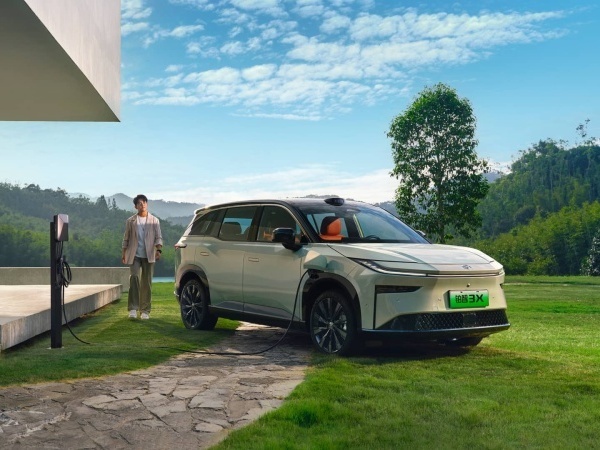
Toyota has released a surprising all-electric SUV in China, priced lower than BYD
LienMar 7, 2025
View More



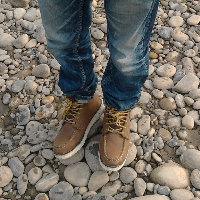








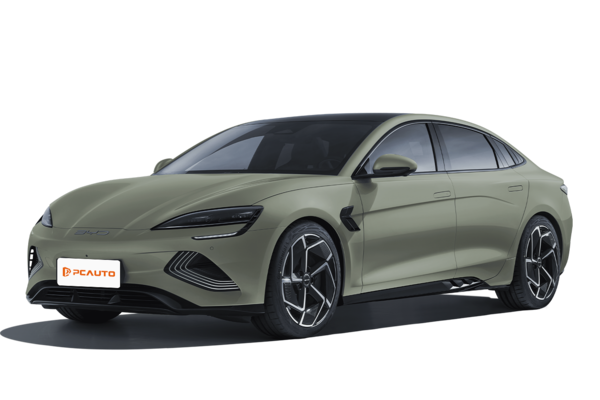

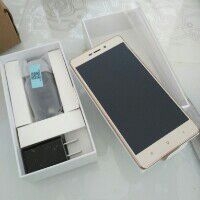



Pros
Cons